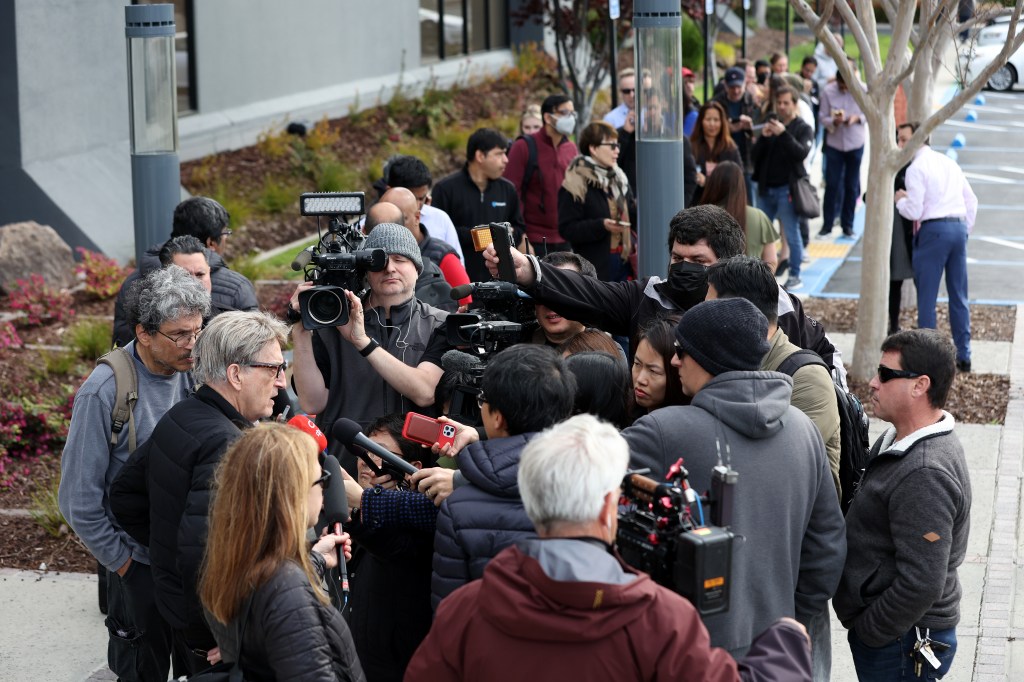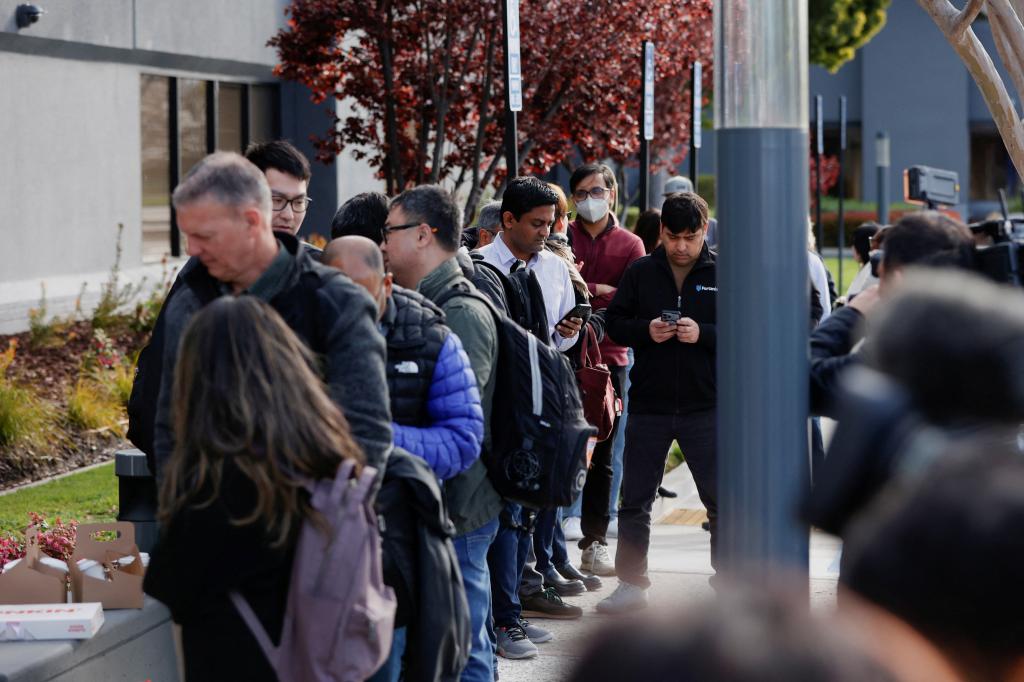How Silicon Valley Bank bailout will be a financial burden for US bank customers
Contact The Author
Contact The Author
Contact The Author
The cost of bailing out two banks that catered to the tech industry will likely be paid by average Americans in the former of more fees, less service and potentially higher taxes — despite President Biden’s pledge otherwise, experts warned Monday.
The dire predictions came as the price of regional bank stocks fell due to fears of further collapses, with trading in more than a dozen of them paused during a massive market sell-off.
The extraordinary rescue announced Sunday night will use the Federal Deposit Insurance Corp.’s Deposit Insurance Fund to make whole all customers of the Silicon Valley Bank and Manhattan’s Signature Bank, which did business with tech startups and the cryptocurrency industry, respectively.
But the fund gets its money in quarterly payments from FDIC-insured banks, which will likely make customers shoulder the burden of any added costs, said William Luther, director of the American Institute for Economic Research’s Sound Money Project.
“The Deposit Insurance Fund is not really an insurance fund,” Luther told The Post. “It is a rainy-day fund, which gets drawn down following a bank failure and replenished thereafter.”
Luther added: “Although the statutory incidence of these taxes falls on banks, they pass along some of the cost to their customers in the form of higher fees and lower-quality services,” such as fewer tellers in each branch.
And if the banking crisis worsens and the fund gets drained, American workers would have to fill it back up because it’s “ultimately backed by the taxpayer,” MIT economist Simon Johnson said.
“That’s why you can have a DIF of $100 billion that backs, right now, $10 trillion in insured deposits. If the DIF were short of money, the commitment is to go out and levy it from banks and obviously from bank customers and fill any gap,” Johnson said.
“The government and the taxpayer is the backstop, and it’s a very powerful backstop, but I wouldn’t say — it’s not my words to say — that Americans won’t eventually be hit with a bill.”
The specter of more bank failures loomed as regional bank stocks tumbled Monday, with First Republic Bank shedding a staggering 72.9% of its value.
Follow The Post’s coverage of Silicon Valley Bank’s collapse
- Ex-Silicon Valley Bank CEO Greg Becker jets to Hawaii after collapse
- Goldman Sachs lost $200M in recent US banking chaos: report
- Kevin O’Leary grilled on why he kept money at SVB if management were ‘idiots’
The price of PacWest Bancorp plunged 63.5%, while Zions Bancorp and Regions Financial closed down 35.8% and 13.4%, respectively.
In a morning speech, Biden pledged that “no losses will be borne by the taxpayers” and that “every American should feel confident that their deposits will be there if and when they need them.”
“Today, thanks to the quick action of my administration over the past few days, Americans can have confidence that the banking system is safe,” he said.
But Republican presidential hopeful Nikki Haley blasted Biden for signing off on Sunday’s plan by Treasury Secretary Janet Yellen, Fed Chair Jerome Powell and FDIC Chairman Martin Grunberg.
“Joe Biden is pretending this isn’t a bailout. It is,” Haley said.
“Now depositors at healthy banks are forced to subsidize Silicon Valley Bank’s mismanagement. When the Deposit Insurance Fund runs dry, all bank customers are on the hook. That’s a public bailout.”
Rep. Thomas Massie (R-Ky.) said Biden and regulators were courting even greater inflation — and likely a recession within six months — through Sunday’s deal to guarantee deposits at SVB and New York City’s Signature Bank, even if they exceed the $250,000 federal maximum.
“They would argue it’s to the benefit of everyone to go all-in with their chips on the first few banks. That’s their argument: that they can forestall a run on other banks if they make everybody whole here,” Massie said.
“The problem with that argument is that people are not stupid. They’re going to understand you can’t do this at every bank.”
Rep. Lauren Boebert (R-Colo.) also accused Biden of bending over backward for SVB due to its client base of liberal-leaning tech startups.
“If First Bank of Midland Texas Oil and Gas failed, you can be sure Biden would not be helping bail them out,” she tweeted.
“This bailout is 100% about protecting the donor base of the Democrats and ensuring if you invest in DEI [diversity, equity and inclusion] and ESG [environmental, social, and governance investing] you’ll be just fine!”
Other critics noted that while depositors including top-tier venture capital firms like Andreesen Horowitz and Sequoia Capital were bailed out, equity and bondholders lost everything because unsecured investors were denied protection under Sunday’s rescue plan.
The losers include big mutual funds that operate retirement accounts for ordinary working Americans.
Vanguard Group owned nearly 11% of SVB shares, followed by Alecta Pension Insurance Mutual with about 4.5% and Franklin Mutual Advisers with almost 2%, according to public filings.
On the other side of the ledger, 98% of all political contributions from tech workers went to Democrats, according to the Center for Responsive Politics.
A GovPredict analysis of FEC data estimated people living in Silicon Valley gave nearly $200 million to Democrats.
“You’ve saved the Democratic donors but who are the equity holders?” one tech insider said. “Retirement funds bought into this…many are policemen, teachers, firemen just trying to retire.”
Another tech insider said that although most in the industry felt the feds did the right thing, “This is a bailout… and the account holders they bailed out are Democrats.”
“Silicon Valley Bank is the bank of the Democrats…they’re looking after their own,” the source said. “If it was the Bank of MAGA, what are the chances it would be bailed out? There’s not a chance in hell.”
Additional reporting by Steven Nelson and Bruce Golding





